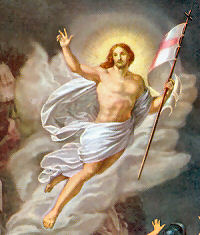 |
He is Risen! Alleluia! |
Item Not Yet Available
As you know, the Catholic Liturgical Year changes each and every year.
This means that we are always updating things throughout the year, keeping a few weeks ahead.
The materials for each season, month, week, and day are currently complete through:
Sunday, June 8, 2025
This work is ongoing. More will be available soon!
To do our best, we need your help!
Please support the development of Catholic Culture content.






